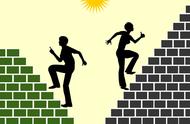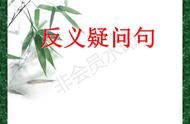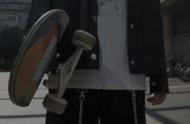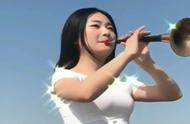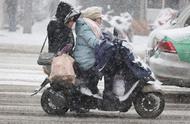10.There is a college in the village, isn’t there?
11.There will be a football match tomorrow,won’t there?
如果陈述句部分是there be句型,那边疑问部分还用be there?(第10题)。但是如果there be 之间有其它助动词或情态动词,那么疑问部分就用这个助动词词或情态动词(第11题)。
12.Tom dislike his teacher,doesn’t he?
13.Sam is unhappy today,isn’t he?
当陈述部分中含有由dis,im,un,ir,il等表示否定意义前缀构成的单词时,一定要注意,这样的词不改变句子的肯定还是否定,以上两题的陈述部分依然是肯定意义。
14.There used to be a cinema near here, didn't/usedn’t there?
15.Tom used to live in China,didn’t/usedn’t he?
当陈述部分含有used to do(过去常常,曾经)时,疑问部分用didn’t或usedn’t。
16.I am a stupid, aren’t I?
17.I am not a stupid, am I?
如果陈述句部分的主谓是I am,疑问部分则用aren’t I?
如果陈述句部分的主谓是I am not,疑问部分则用am I?
18.I like him because he is honest, don’t I?
19.I think he is honest, isn’t he?
20.We hope that Brazil will win, won’t it?
在主从复合句中,附加疑问部分的主语和动词一般情况下与主句保持一致(18题);但是如果有主句中的谓语动词是think, believe, expect, hope,imagine,feel等,附加疑问部分的主语和动词要与从句的从句保持一致(19题、20题)。

21.They have books, don’t / haven’t they?
22.He has gone to Dhaka, hasn’t he?
当陈述部分中有have,has,had时,要分清他们是行为动词还是助动词。如果它们是行为动词(有),那么附加疑问部分的助动词还用have,has,had,或者do,does,did(21题);如果它们用作助动词,那么附加疑问部分只能用它们本身(22题)。
23.I have to go now, don’t I?
24.I had to go then, didn’t I?
当陈述句中包含have to、has to、had to(必须,不得不)时,疑问部分分别用don’t、doesn’t和didn’t。
25.Let’s have a rest, shall we?
26.Let us have a rest,will you?
27.Let me have a rest,will you?/may I?
以Let 开头的祈使句,Let’s用shall we?(包括听话人)。Let us用will you?(不包括听话人)。Let me用will you?或者may I?
28.You’d better leave now,hadn’t you?
当陈述部分中含有had better 时,疑问部分用hadn’t。

29.You need go, needn’t you ?
30.You need to go, don’t you?
31.You need a pen, don’t you?
32.You dare say, daren’t you?
33.You dare to say, don’t you?
当陈述句中包含need或dare时,如果need和dare用作实意动词,疑问部分用don’t/doesn’t/didn’t(第30、31、33题);如果need和dare用作情态动词,那么疑问部分分别用needn’t和daren’t。
34.It’s rained this morning, hasn’t it?
35.It’d be nice, wouldn’t it?
36.It’d been raining for two hours yesterday, hadn’t it?
注意:陈述部分中遇到缩写形式,一定要弄清楚它是什么,然后根据规则完成附加疑问部分。
37.How sweetly the bird sings, doesn’t it?
38.What a fine day it is,isn’t it?
如果把感叹句变成反意疑问,只需要把感叹号变成逗号,然后按照规则完成附加疑问部分。
39.You ought to see a doctor, shouldn’t you?
句子带有情态动词ought to,疑问部分用shouldn’t。
40.You must be tired,aren’t you?
当陈述部分中带有表示“推测”的情态动词must(一定),can’t(不可能)等时,疑问部分不用情态动词,用对应动词。
(如有遗漏或讹误,敬请指正!)
专注初中英语教学,助力中考学子,欢迎关注“Mark英语课堂”




